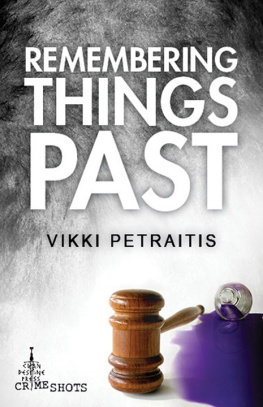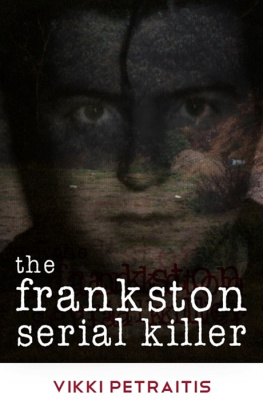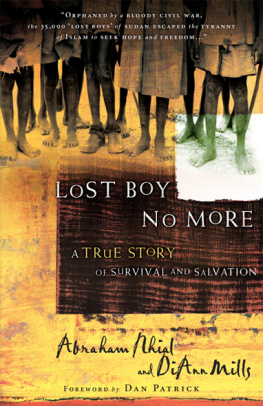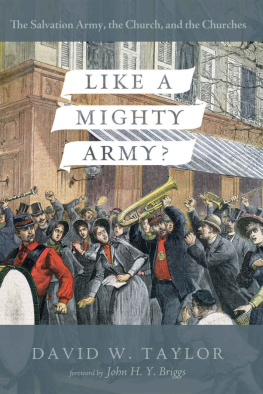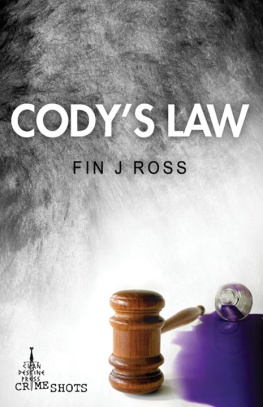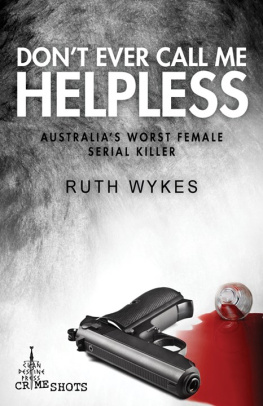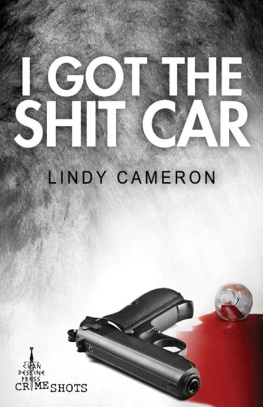CLAN DESTINE PRESS
is proud to release
this ebook
and hopes you enjoy the story.
Please feel free to visit us for more great books by Australian authors:
http://www.clandestinepress.com.au
REMEMBERING THINGS PAST
by
Vikki Petraitis

BLURB
In the early 1950s, Rod Braybon's father died, leaving hismother with eight children she couldn't care for. As a ward of the state, Rodfinally ended up at the notorious Bayswater Boys' Home run by the SalvationArmy.
Rod endured years of ill-treatment at the hands of the Salvation Army, thenspent a life-time repressing the memories that haunted him.
Finally, after seeing a chance article in a newspaper, Rod decided to speakout. His story created a nation-wide sensation and won a prestigious award forthe journalist who broke it.
That Rod was willing to speak out to try and ease the suffering of otherslike him, is incredible. That he survived at all, is nothing short of amiracle.
REMEMBERING THINGS PAST
A few years ago, Rod Braybon read an article about child abuse in TheAge newspaper and, in an instant, things came flooding back -things that he'd forgotten; things that he'd pushed out of hismind and hidden in a Pandora's box of hurt. The Melbourne newspaperarticle was specifically about the abuse of children who were wardsof the state decades earlier.
Rod Braybon was one of them.
Now in his early 60s, Rod had spent half a century not thinking aboutwhat had happened to him as a young boy when he was shunted from one institutionto another. And he especially spent those 50 years not thinking about his timeat the notorious Bayswater Boys' Home run by the Salvation Army.
Even though most of the bad memories of his childhood were locked safelyaway, without realising it, Rod had felt the effects of them his whole life.Indeed the things that were hidden had become his master, because everything hehad done in his adult life was done to counteract what had been done to him as achild. If you are at the mercy of brutality, you seek power. If you are strippedof your rights, you find any way to protect yourself. And if nothing in yourlife is how it should be, life's rules remain a mystery to you.
Rod's dad Richard was killed in 1950 in an accident at theMount Hope Quarry in Cohuna where he worked to supplement the income from thefamily's dairy farm. He and two workmates had been concreting the floor of ashed. On one side of the shed, a large engine was being run-in and the workershad all been warned not to go near it.
Richard Braybon was operating the concrete mixer outside the shed, while oneman wheeled barrows of concrete inside to the third man who was laying it. Asfar as anyone knew, Richard was supposed to work the mixer all day; but forreasons unknown to anyone, and contrary to orders, he entered the shed with atrowel in his hand and crawled on his hands and knees under the new engine'sbelt, which was about a metre off the ground. A worker saw him clearing somedirt out from underneath to prepare the area for concreting.
A sound alerted the two colleagues that something had gone wrong. Accordingto their later statements to the Coroner, they both looked over and saw Richardlying on the ground with a small trickle of blood on his forehead.
One worker raced to find the foreman to turn the engine off. The foremanrushed into the shed and dragged Richard out from under the engine and carriedhim outside. He was taken to the Cohuna Hospital. Doctors later found him to bedeeply unconscious and suffering from very serious brain injuries - a bolt fromthe machine had been driven into the back of his skull causing an inch-widefracture. Surgeons operated, but found the injuries to the base of his brainwere too severe. They did what little they could.
A two-day vigil at the local Cohuna District Hospital drifted slowly towardthe inevitable and Richard died with his beloved wife Peggy weeping by hisbedside. He was 34 years old, and left behind his widow and eight children -Barry aged 10, Janice, 8, Rod, 6, Michael, 4, Stephen, 3, Geoffrey, 2, and thesix-month-old twins, Sonia and Gordon.
Before his father's death, Rod and his school-aged siblings would walk thekilometre to the local school and do lessons with 40 other raggedy farm kids whoonly wore shoes for the duration of their classes. At the final bell of the day,shoes were stuffed into schoolbags and the children would take off, runningthrough the paddocks to their farms and freedom. When they weren't doing farmchores, the brown-skinned, freckled-face kids leapt from ropes into the river orfished for yellowbelly, cod or redfin.
That joyous and carefree life, on a small dairy farm nestled into a bend inthe river to the Cohuna Weir, came to an abrupt end. In the jostle that followssudden tragic death and overwhelming grief, Peggy and her brood of youngstersleft the farm, which had been the only home they had ever known. Peggy received1500 in compensation and 160 was put in trust for each of the children forwhen they turned 18. She took her money and her family to start a new life inShepparton.
But that didn't work out.
Richard had always been the disciplinarian in the family and without him,Peggy had neither the ability nor the inclination to keep her children in line.What's more, to cope with the hand fate had dealt her, she began seeking solaceand male company at the local pub.
Left to their own devices, the Braybon children ran wild and soon came to theattention of the local police. On more than one occasion, the children weredelivered home in the back of a paddy wagon. Peggy tried again by moving thefamily to Braybrook.
It was there, two years later and after another incident in which thechildren broke into the local RAAF base, that Peggy made a decision that wouldalter their lives forever. She sent her children around the corner to theirgrandfather's house with a note. Peggy's father read the note, then drove theolder kids to Russell Street police headquarters and left them there without anyexplanation.
That was the day the Braybon children became wards of the state.
Janice was sent to a girls' home and the twins to a home for babies. The boyswere separated, but Rod and Mick - aged eight and six - ended up together; andwere placed in a string of boys' homes that were brutal and violent.
They had to learn how to look after themselves and each other. Being theelder, Rod had Mick's back - most of the time. There were occasions though, whenhe was simply unable to protect his little brother; and Mick would forever bearthe scars from some things Rod was unable to prevent; like the time a worker atthe Menzies Home for Boys drove a pitchfork through Mick's foot.
The brothers had been digging up carrots at the home, on Olivers Hill inFrankston, when the supervising officer sneered that they weren't digging deepenough.
'Here's how you do it,' he said, and grabbed Mick's pitchfork and thrust itinto the dirt. Mick screamed blue murder as one of the large prongs pierced thearch of his right foot and impaled him into the ground.
'You stupid bloody fool,' said the man.
A lady from the kitchen came running and pulled the pitchfork out of Mick'sfoot. She untied her apron and wrapped it around the injury which had sprayedblood as soon as the pitchfork was removed.
Rod watched as his 10-year-old brother, using every fibre of his being,straightened his crumbled face back into a blank expression. Rod was helpless,but he understood completely. This was one lesson they'd learnt early: feelno pain.
If someone hurt you, you had to turn off the pain in your head; and hide itaway. Rod and Mick had been caned and strapped and beaten often enough tounderstand the power struggle. A boy couldn't stop a belting, and he couldn'tstop a pitchfork being driven though his foot, but he could call on every ounceof his inner-strength and show that it meant nothing.

